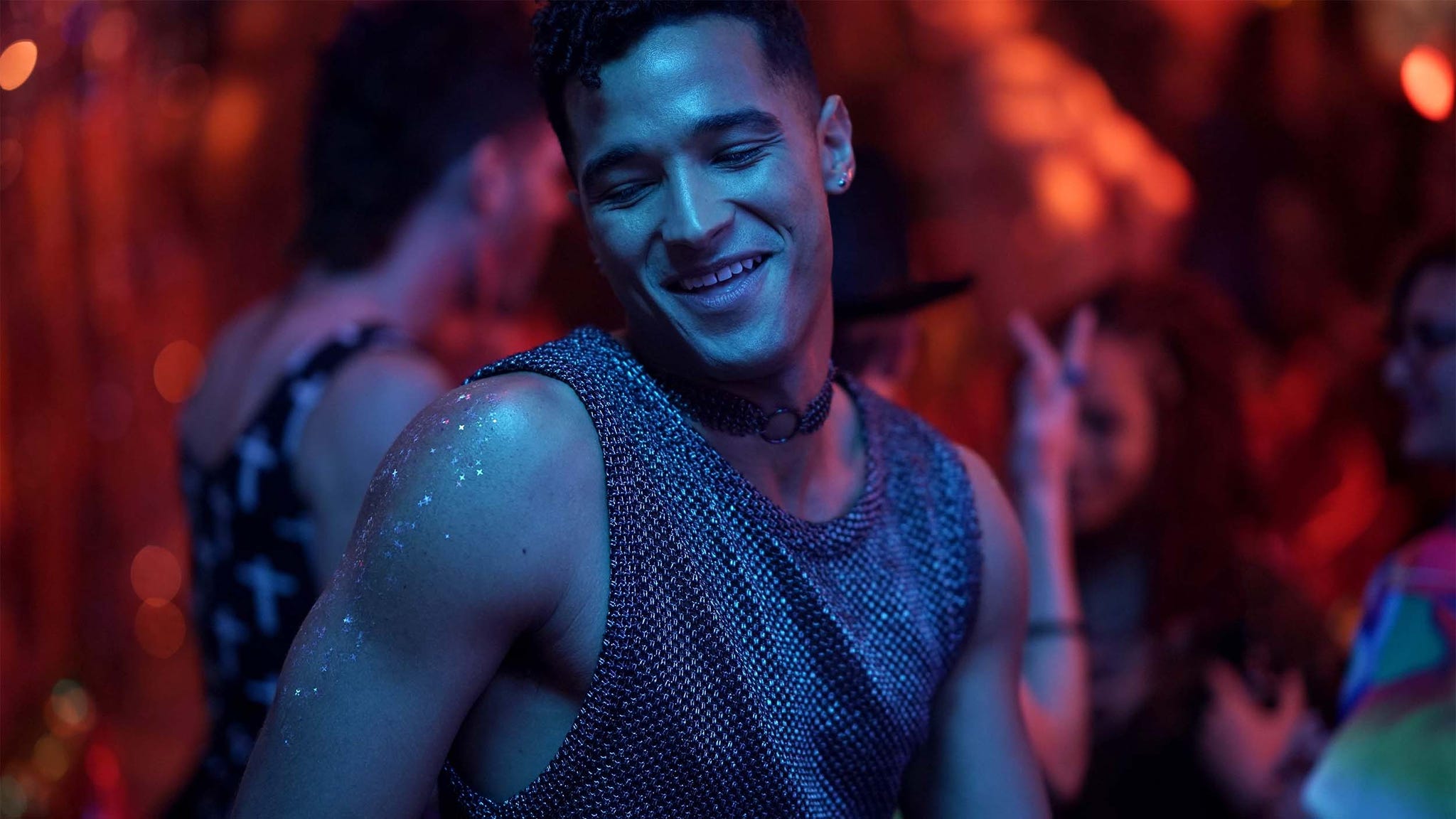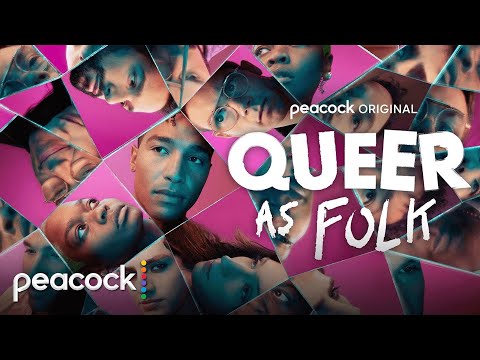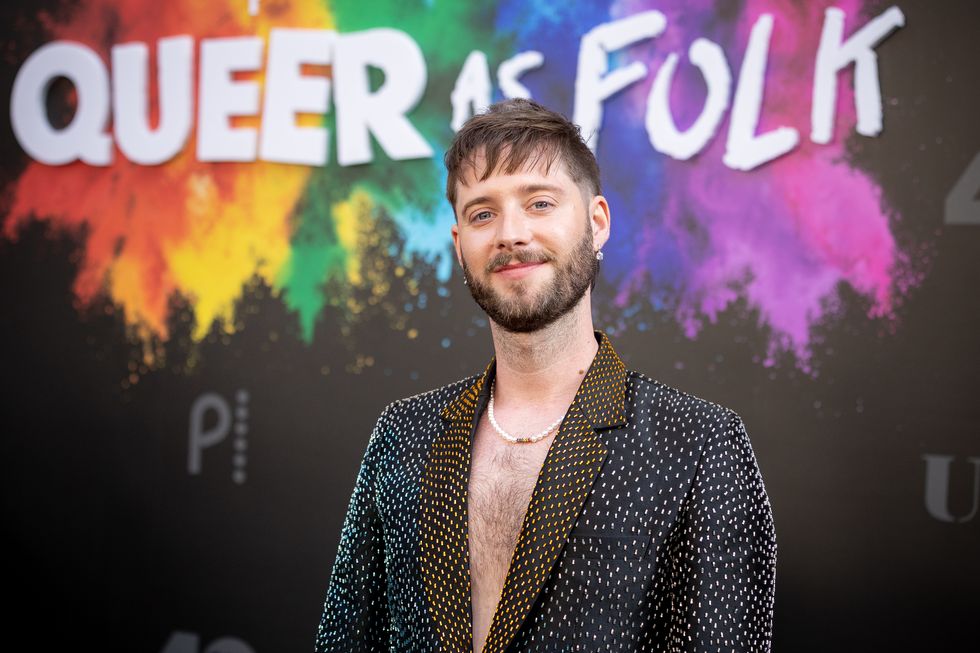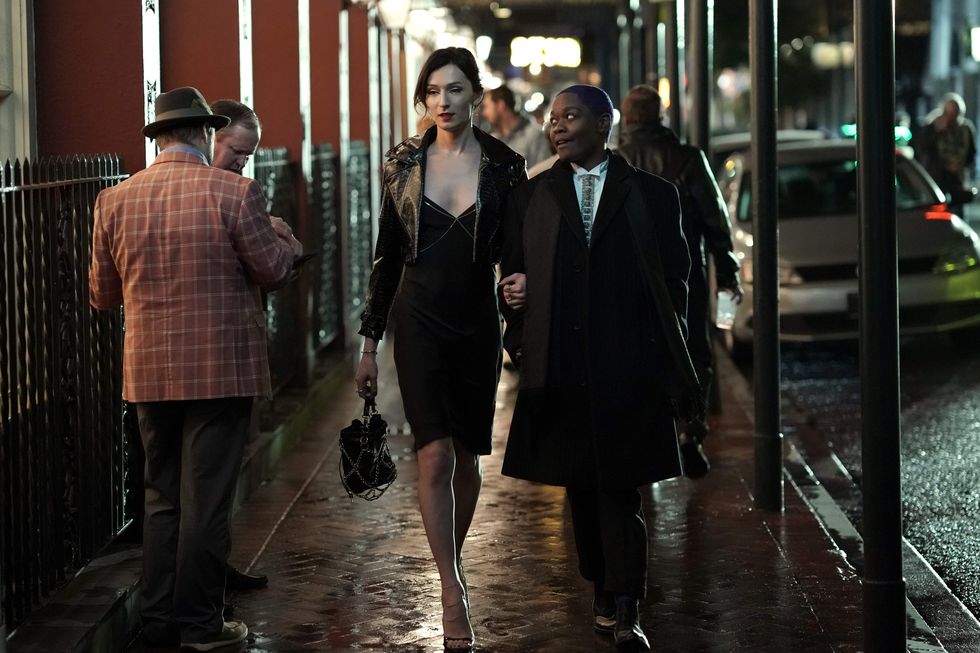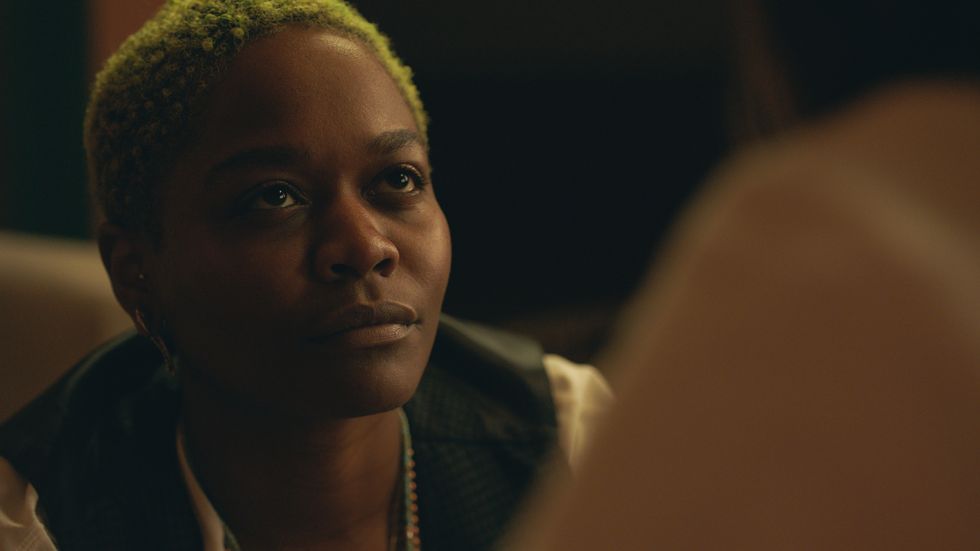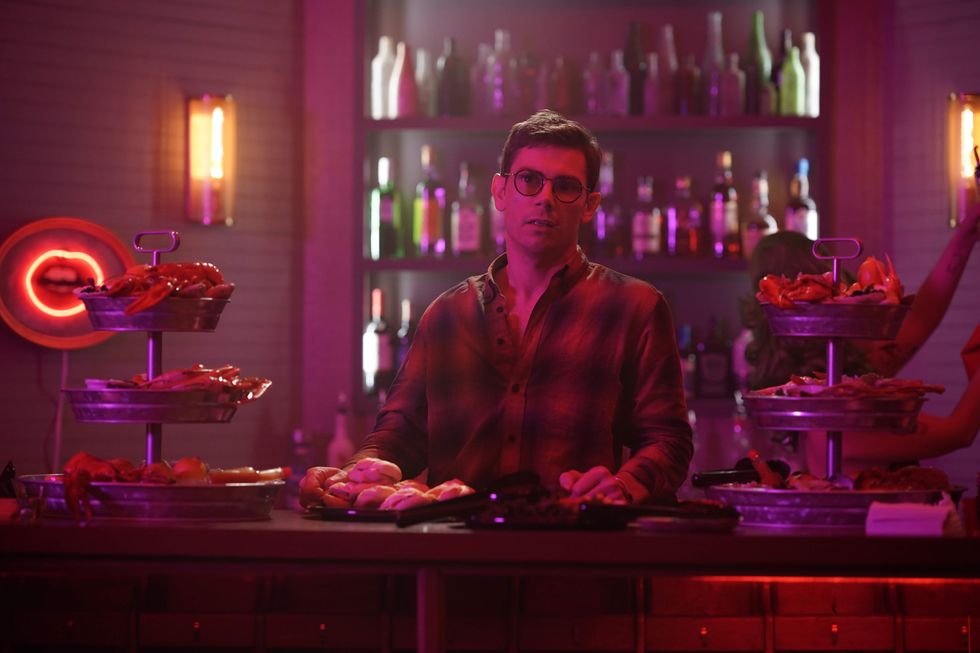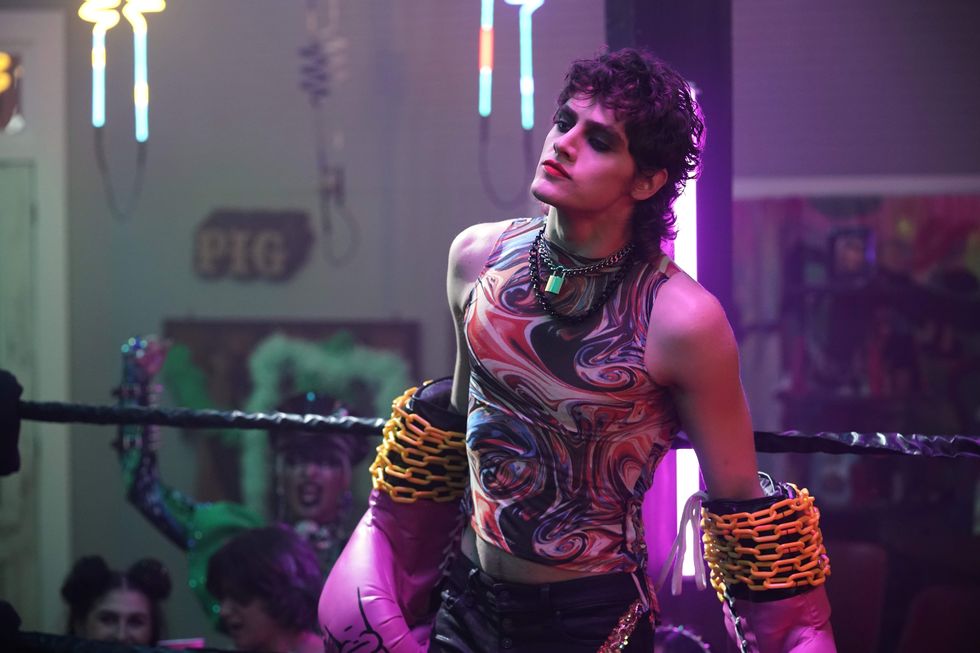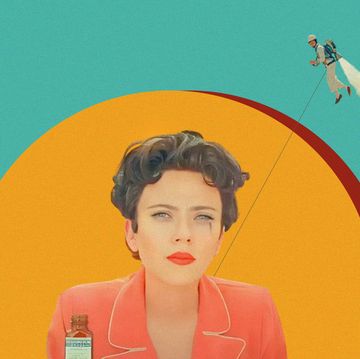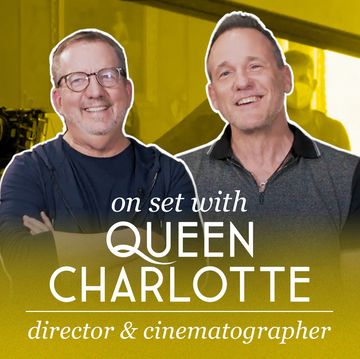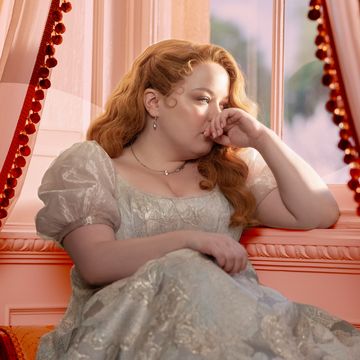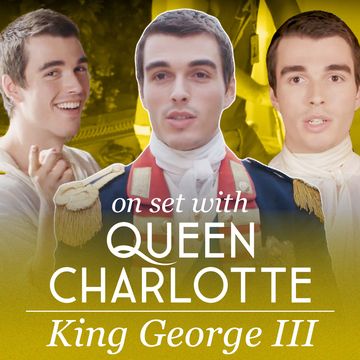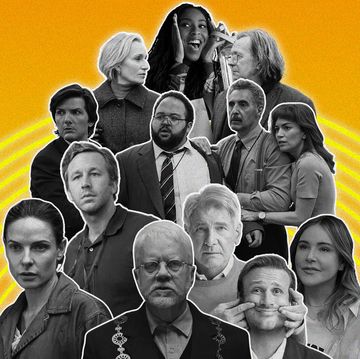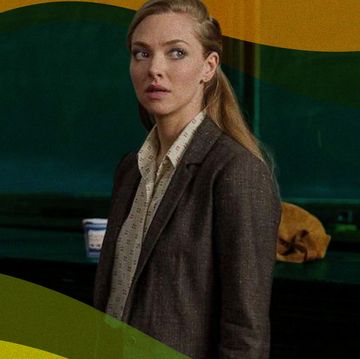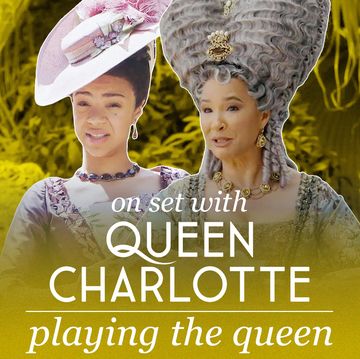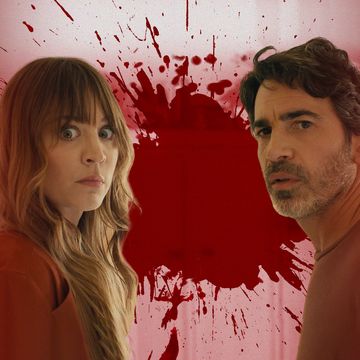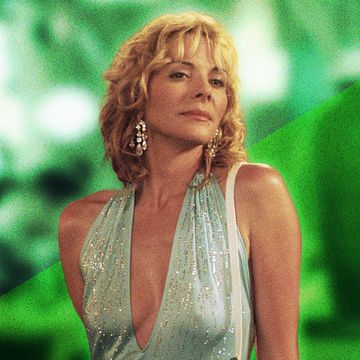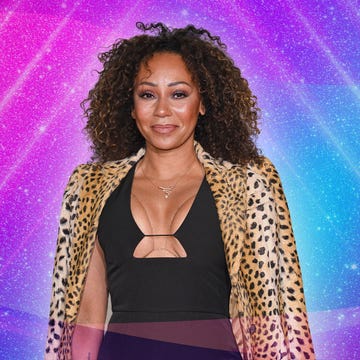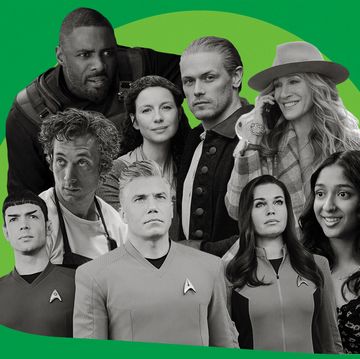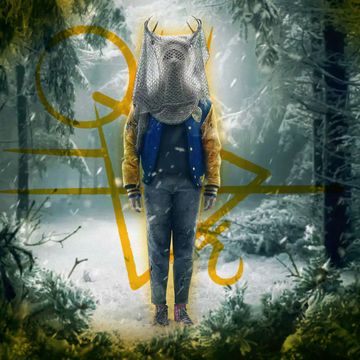When gay drama Queer as Folk made its debut on British TV in 1999, it was groundbreaking. It gave a voice to the LGBTQ+ community on-screen as a drama series that not only made waves in the gay community but also changed TV forever. For many viewers, it was the first time that queer characters were seen in pop culture.
Created by Russell T. Davies during a time when homophobia was commonplace, Queer as Folk was about acceptance and closeted romance. However, the series was very white and cis-male, and many POC queer viewers didn’t see themselves represented in the show. (The American version of the series, which ran from 2000 to 2005, became the most-watched show on Showtime, with standout performances from Gale Harold and Hal Sparks.)
Now, Queer as Folk is making a comeback for today’s generation, with a new series premiering on Thursday, June 9, on Peacock. It isn’t exactly a reboot; Stephen Dunn, creator of this iteration, calls the New Orleans-based series a “reimagining” of the British show. The all-star cast includes Kim Cattrall (Sex and the City), Juliette Lewis (Yellowjackets), and Ryan O’Connell (star of the Netflix series Special), who is an actor, writer, and executive producer on the show.
As Dunn says, “Queer stories are more vital than ever. I am reminded of that again and again as new anti-trans and ‘Don’t Say Gay’ legislation is introduced across the country, threatening our community. The world is desperately in need of a new, empowering narrative. There is still much more ground to be broken.”
It’s no wonder that Davies considers himself a fan of the new series, which he described in a statement as “more diverse, more wild, more free, angrier — everything a queer show should be.”
The series captures the rawness of New Orleans’ queer culture and follows a group of friends — and their mothers — as they work to patch together their lives after their entire community suffers from a local tragedy. The new Queer as Folk is set in New Orleans in part to pay tribute to Dunn’s longtime friend Chi Chi DeVayne, a Louisiana-born drag queen who competed on the eighth season of RuPaul’s Drag Race (and the third season of RuPaul’s Drag Race All Stars). Dunn wrote one of the lead roles for DeVayne, but she passed away in 2020 from pneumonia after she was hospitalized for scleroderma-related kidney failure. In many ways, the show is a tribute to DeVayne and the queer community.
Ahead of the premiere, Queer as Folk’s creators, writers, and stars, including Stephen Dunn, Ryan O’Connell, Jesse James Keitel, CG, and Fin Argus, break down the show for Shondaland, dishing on queer representation and how fun shooting this series was.
Stephen Dunn
Dunn is the director, co-executive producer, writer, and creator of the new Queer as Folk. Dunn, 33, previously wrote and directed an episode of the Apple TV+ series Little America, which follows a gay immigrant from Syria, and made his directorial debut in 2015 with a film called Closet Monster, which was awarded the Best Canadian Feature Film at the Toronto International Film Festival.
NADJA SAYEJ: Why is the series set in New Orleans, a city that fuses queerness and culture?
STEPHEN DUNN: New Orleans was kind of a no-brainer for me, in terms of what our goals were in a distinct queer community in a way we haven’t had a chance to see yet. We’ve seen queerness in Los Angeles, New York, and San Francisco time and time again. But New Orleans has a specific and diverse queer community that rarely gets a chance to be seen. We’ve seen a lot of Mardi Gras, but we wanted to show the local talent, the defiant punk energy in the Deep South, the liberal oasis of the South that a lot of queer people gravitate toward. The community has been through so much. That resilient energy was important to us from day one to show in the series.
NS: How did you create Queer as Folk for 2022?
SD: I just wanted to create a show that reflected my community. I haven’t really seen that on-screen before. When I watched the original Queer as Folk, it changed my life. It was the first time I felt represented, my first exposure to queer community. But a lot has changed in 20 years, and the word “queer” has evolved, itself. It means something very different. It was a way for me to reimagine the show in an inclusive way, in terms of racial diversity, gender, politics, and identity, differently abled communities too.
NS: The story starts with a tragedy that happens at a nightclub. How did you navigate something so sensitive?
SD: The show is very inspired by the events that happened at the Pulse nightclub in Orlando, the nightclub shooting. It is a fictional story set in New Orleans. But I did go down to Orlando to meet some of the survivors early on in the developmental process. One thing I promised them was to not show the shooting — I wouldn’t show violence or the shooter. We know those headlines, that story, but that wasn’t the story I wanted to tell. Queer as Folk is about a community rebuilding after that event, creating a safer space than the one that existed before it. Despite it having a traumatic event at the beginning, it’s filled with queer joy that allows the characters to explore their emotions, pain, and sexuality, and be authentic in that way.
Jesse James Keitel
We know Keitel from being one of the first trans woman actors to play a nonbinary series regular on prime-time TV in Big Sky. Now, Keitel plays Ruthie, a trans mother and English professor who is ditching her party-girl ways for parenthood. It’s a challenging transition with twins in her household, whom Ruthie welcomed with her partner, Shar, played by CG.
NS: What was it like working together with CG as parents who can’t seem to grow up?
JESSE JAMES KEITEL: It was such a pleasure working with CG, and the intimate level of trust between the two of us. Navigating something as messy and complicated as parenting, and with two parents completely not being on the same page. It was easy working together.
NS: How much did you have a hand in costume design? You wear one T-shirt that says: “A girl without a d--k is like an angel without wings.” Where did that come from?
JJK: This incredible trans artist who I follow on Instagram. She makes a lot of low-key, antagonistic art about her own trans experience. When I saw that, I immediately sent it to our costume designer, Cristina Spiridakis. I said: “Ruthie needs to wear this.” That was the last possible scene it could have made sense for, and it arrived to us on set the day before. It was perfect timing.
NS: How do you feel about trans visibility on-screen today? Is it getting better? Is it misinterpreted? What’s your opinion?
JJK: All of the above. With our show Queer as Folk, it’s for sure getting better. I’m immensely proud of what we’re showing in the series with trans storytelling in particular. Trans people, trans women in particular, are totally vilified every step of the way. You can’t look at the media without seeing a trans woman abused or murdered, [or politicians] trying to legislate us out of existence, or your favorite comedian saying some grotesque things about us. Getting the opportunity to play a flawed, beautiful human with hopes, dreams, and a relationship that is both thriving and struggling, I hope it humanizes that trans women are not the villain.
NS: What are your thoughts on misgendering or people not using the correct pronouns, as we see sometimes in the series?
JJK: Subtle misgendering throughout my early transition gave me a clearer sense of not only who I was, but who I wasn’t. It was very cut-and-dry. But certain pronouns didn’t really feel like they served me. The way Ruthie handles pronouns is gentle and eloquent.
NS: Your character’s deadname is bleeped when there are flashbacks of Ruthie growing up. What do you think of that?
JJK: I’m so proud of it. You don’t need to know Ruthie’s “deadname.” Straight, cis[-gendered] people love to focus on the actual transition of the trans person and not the person underneath that. They want to know what their name was, and if they had any surgery. It’s all invasive and exploitative. The way we handle it on the show is none of the above.
CG
CG plays the role of Shar, a nonbinary parent who just wants the best for their baby twins. They are the voice of reason in their relationship with Ruthie, but that doesn’t mean Shar is risk averse, as things heat up in unexpected ways too.
NS: How does it feel to be a part of Queer as Folk, which is really for 2022?
CG: That’s why the word “reimagining” of the series is so important. It’s so true. It’s truly an honor to be part of such a cast that is so deeply themselves, so deeply ready to love. To give, even in the climate that we’re in, both on and off the camera. I’m just thankful to be here and be a part of it, because who knew?
NS: There’s one scene in a fancy restaurant where you’re having to assert your pronouns, and it ties into the compulsive need to gender people, as we see in the show. Why was that scene so important?
CG: It’s something people must deal with every day, whether you choose to correct someone when they misgender them or you decide to just go about your day because you figure, “Oh, well, this person is a server at a restaurant, and I’ll never see them again, so why bother?” I think the moments where you do advocate for yourself, whether it’s messy and you’re drunk [like in the scene], is important to see. It’s funny because Shar is being “sir-ed” [being called “sir”]. Sometimes in my life, I am “sir-ed.” [When that happens], I think “win.” But it goes to show you how differently people relate to being called sir, ma’am, he, she, or they.
Ryan O’Connell
O’Connell (Special) sheds light on disabled voices in the LGBTQ+ community as an actor and writer with cerebral palsy. He was originally brought on as a writer and co-executive producer for the series but ended up starring in it too. He plays the role of Julian, a sheltered, rich pop-culture nerd, the gay son of a smothering mother [played by Kim Cattrall] who is ready to be more independent. Throughout the series, he explores his sexuality, even if it takes him to taboo places, and his friendships within the gay community.
NS: Did you write the character of Julian?
RYAN O’CONNELL: No! I came on as a writer for the show, and Stephen Dunn asked me to star in it too. That was a total twist I wasn’t planning on. The character of Julian came from Stephen’s mind. I eased into it, but he’s a very specific character. I don’t think I could have drummed up an airplane enthusiast who loves the mall, and loves getting his d--k sucked in public places. That came from the filthy gay mind of Stephen Dunn.
NS: You said in another interview that you wanted to tell a story about what queer looks like now, in an inclusive way that “didn’t feel like woke, intersectional bingo.” What does that look like?
RO: Yes, that is from my absolute, disgusting mouth. That means that sometimes when Hollywood puts its woke hat on, it feels a bit like checking a box. It feels like, “Okay, I’m a character speaking for a marginalized group of people. This is my purpose, and this is what I’ll serve.” It feels robotic, it doesn’t feel lived in, it doesn’t feel like how real people talk. Obviously, when I read the pilot, I knew this isn’t what we were going to do. But it was the No. 1 thing. I thought, here we have a diverse group of people, but it’s really important to me that we write for character first, identity second. It’s not going to be didactic; it’s not going to be an after-school special. Obviously, their identity is important to who they are, but we’re really going to write from a character’s point of view.
Fin Argus
Fin Argus plays a nonbinary, rebellious teenager named Mingus, who is armed with guyliner and his/their mother’s red lipstick. On a coming-of-age journey, Mingus experiments with drag but isn’t defined by it. As an actor, Argus had a leading role in the Disney+ musical drama Clouds (2020). He is also a musician who loves David Bowie and has modeled part-time, getting his start in Chicago.
NS: What was it like working with Juliette Lewis as your mother on the show? She feels like everyone’s dream mom.
FIN ARGUS: It was so much fun. Juliette Lewis is so talented, and we had a lot of meaty, emotional scenes together. They always hit. I had a blast filming them. She also makes interesting choices when she’s acting, which inspired me to take more risks with my own acting. I tried something new. I’m grateful for her friendship.
NS: For every character you play, you build playlists of what your characters would listen to. So, what’s on the Mingus playlist?
FA: David Bowie. There’s a lot of Bowie, Cage the Elephant, a lot of Sophie. A lot of pop-punk. It’s more like Issues, a lot of emo stuff. Mingus is on the cusp of growing out of an emo phase but hasn’t quite yet. There’s a range.
NS: How hard was it to show the struggles of drag, and overcoming fears, onstage as well as on-screen?
FA: It was cathartic but also fun. The last drag sequence was probably my favorite live performance I’ve ever had the chance to give. I really put my entire being into it. I’m proud of how it turned out. It was an immense waterfall of emotions while we were filming it. Right after shooting that scene, we all got to dance together, having a true moment where we were all enveloped in queer joy. It was a great full-circle moment. Seeing Mingus tap into that again makes my heart all warm and fuzzy.
Nadja Sayej is an arts and culture journalist based in New York City who has written 5 books, including Biennale Bitch and The Celebrity Interview Book.
Get Shondaland directly in your inbox: SUBSCRIBE TODAY
